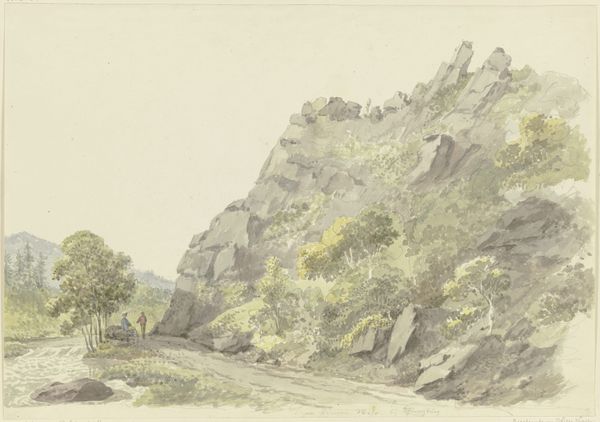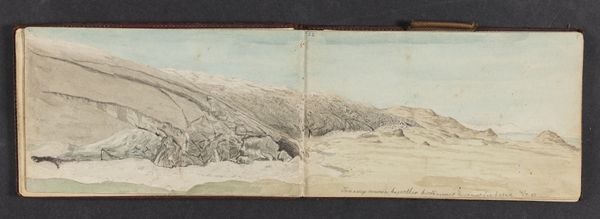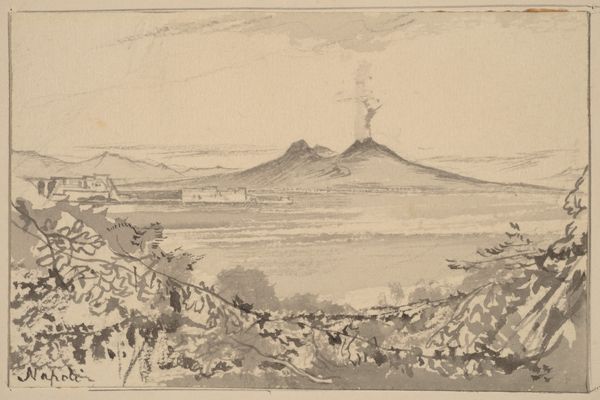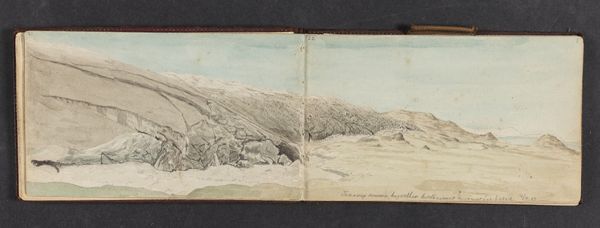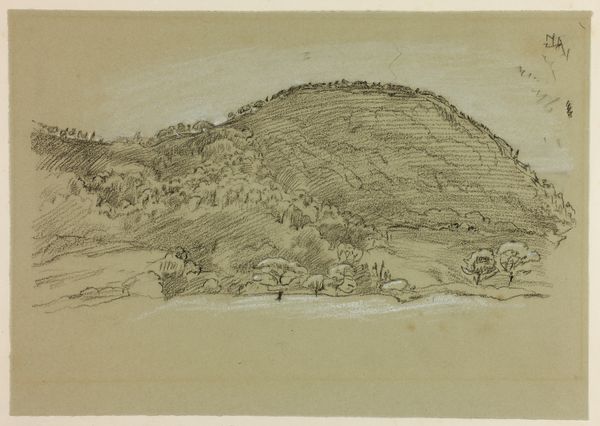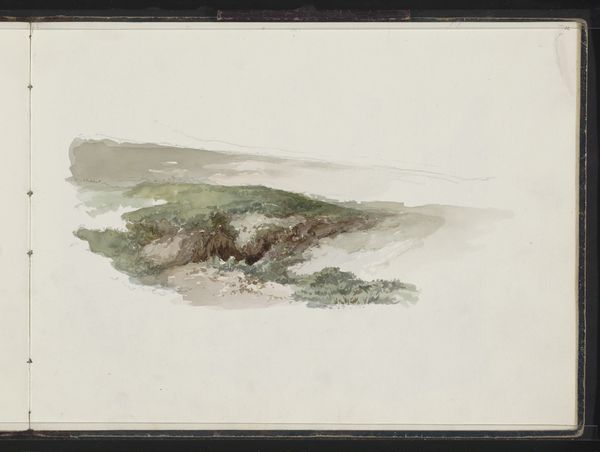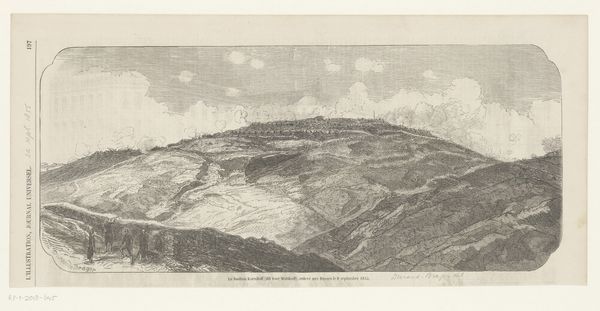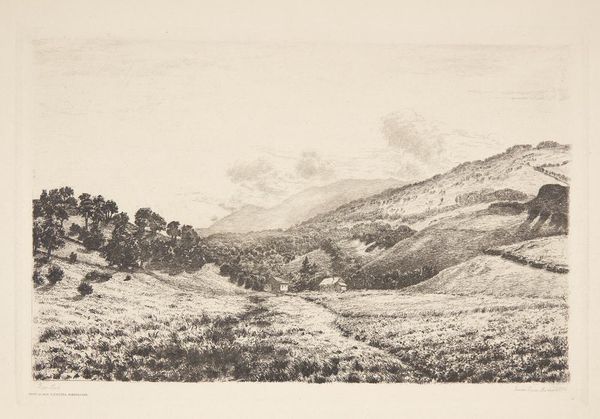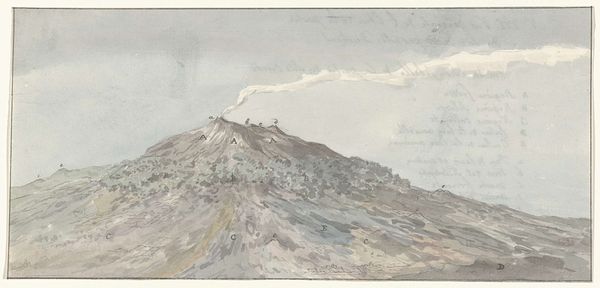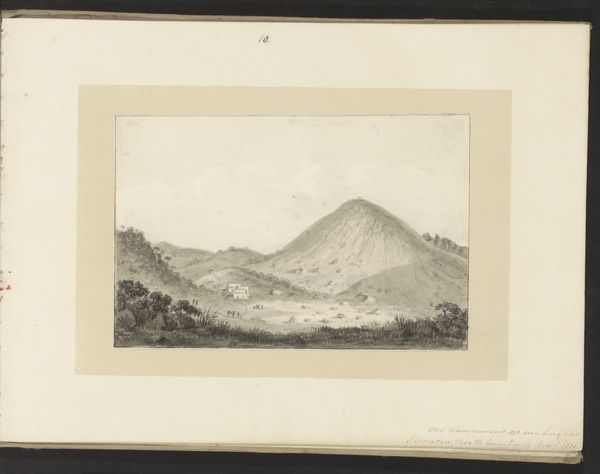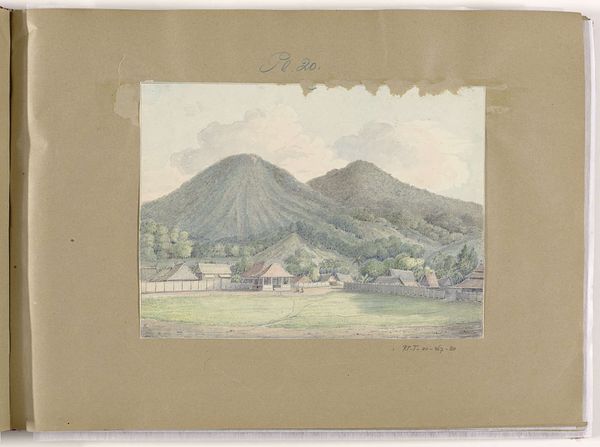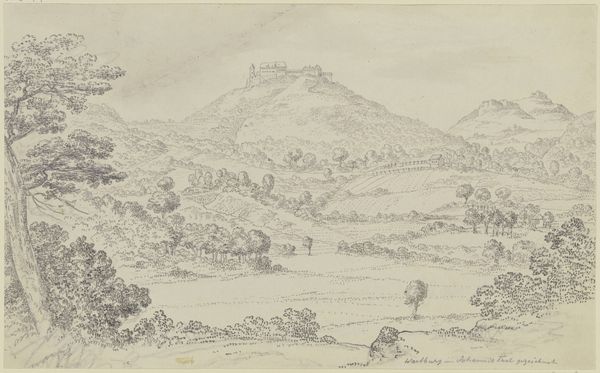
Gezicht op Vesuvius vanaf klooster Dei Zoccolanti met lavastromen uit 1734, 1764 en 1776 1778
0:00
0:00
louisducros
Rijksmuseum
Dimensions: height 300 mm, width 851 mm
Copyright: Rijks Museum: Open Domain
Louis Ducros created this watercolor, "View of Vesuvius from the Dei Zoccolanti Monastery with Lava Flows from 1734, 1764 and 1776," sometime between 1776 and 1810. Ducros, a Swiss artist working in Italy, here depicts Vesuvius, not just as a natural phenomenon, but as a site of cultural and historical significance. The inclusion of the monastery in the foreground places the viewer within a specific social and religious context. During this time, the volcano and its eruptions were both a source of terror and fascination, drawing scientists, artists, and tourists alike. Ducros' rendering of the lava flows from specific years—1734, 1764, and 1776—adds a layer of historical documentation to the image. This attention to detail reflects the growing interest in empirical observation and scientific inquiry that characterized the Enlightenment. To fully understand this artwork, a historian might explore travelogues, scientific reports, and other visual representations of Vesuvius from the period. By examining these resources, we can better appreciate the complex interplay between nature, culture, and society that shaped Ducros' artistic vision.
Comments
No comments
Be the first to comment and join the conversation on the ultimate creative platform.

